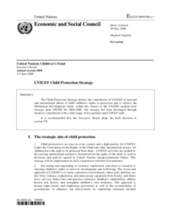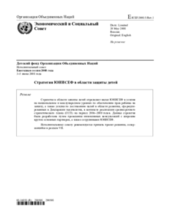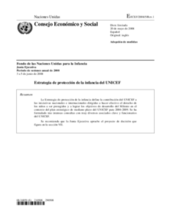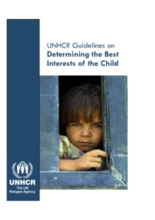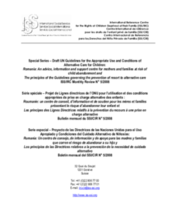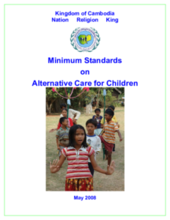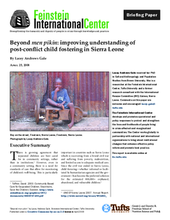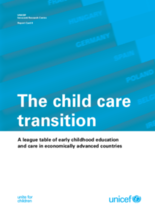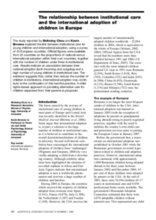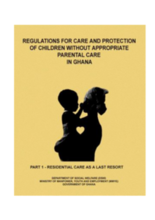Displaying 271 - 280 of 372
Outlines the contributions of UNICEF to national and international efforts to fulfill children’s right to protection.
Outlines the contributions of UNICEF to national and international efforts to fulfil children’s right to protection
Describe las contribuciones de UNICEF a los esfuerzos nacionales e internacionales para cumplir el derecho de los niños a la protección.
Provides a formal mechanism to determine the best interests of the child as a mechanism within a child protection system
Explores the principles of the Draft UN Guidelines governing the prevention of resort to alternative care and provides a short case study on successful programming
This document includes the Minimum Standards on Alternative Care for Children set out by the Government of Cambodia, including both the Minimum Standards for Residential Care for Children and the Minimum Standards on Alternative Care for Children in the Community.
Examines the challenges posed in monitoring and ensuring child protection in informal and formal fostering in post-conflict areas.
A great change is coming over childhood in the world’s richest countries. Today’s rising generation is the first in which a majority is spending a large part of early childhood in some form of out-of-home child care. This Report Card discusses the opportunities and risks involved in the child care transition, and proposes internationally applicable benchmarks for early childhood care and education.
Explores causal relationship between increased international adoption and increase in institutional care of children in Europe.
These standards were drafted as part of a reform initiative programme in Ghana to ensure that institutional care is used as a last resort

